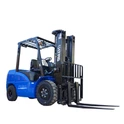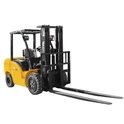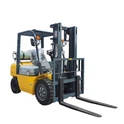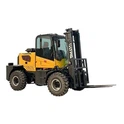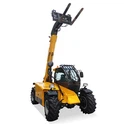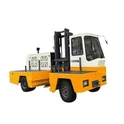Forklifts, essential equipment in modern industry, are both powerful and versatile. These machines, about the size of a small car, can lift thousands of pounds and raise them to the height of several stories. Whether on rugged construction sites or in modern warehouses, forklifts play a unique role in ensuring the smooth operation of various industries.
The invention of forklifts came from the need for industrial development. In 1917, Clark Company invented a forklift called the "Tructractor" to solve material handling issues within factories. As time went on, forklift design and functionality continued to improve. In 1923, Yale introduced a truck with lifting forks and a mast, which is considered the first true forklift.

The Clark Tructractor

Yale produced its first forklift truck in the 1920s
Two key events played a significant role in the development of forklifts: the introduction of standardized pallets in 1930 and the outbreak of World War II. Both events significantly boosted the popularity and production of forklifts.
As industry and warehousing advanced, forklift designs continued to evolve. From manual operation to today's electric and internal combustion-powered models, and from simple lifting capabilities to highly automated and intelligent systems, forklifts have become indispensable in modern industry.
There are various types of forklifts based on their functions and uses, including battery-powered (electric) forklifts, internal combustion (IC) forklifts, powered pallet jacks, order pickers, reach trucks, tow tractors, high-capacity forklifts, and rough terrain forklifts. Each type has its own unique features and ideal applications. For example, rough terrain forklifts are particularly suited for use in complex environments like construction sites.
Contact us now for the best quote!
In addition to the diversity in types and functions, the basic components of forklifts are critical to their performance. The frame, counterweight, mast, forks, and load backrest are all meticulously designed and manufactured to ensure safe and efficient operation.
Moreover, with the increasing emphasis on environmental protection and technological advancement, more forklifts are now using eco-friendly power sources such as batteries, liquid propane, and hydrogen fuel cells. These green technologies not only reduce operating costs but also extend the lifespan and efficiency of forklifts.
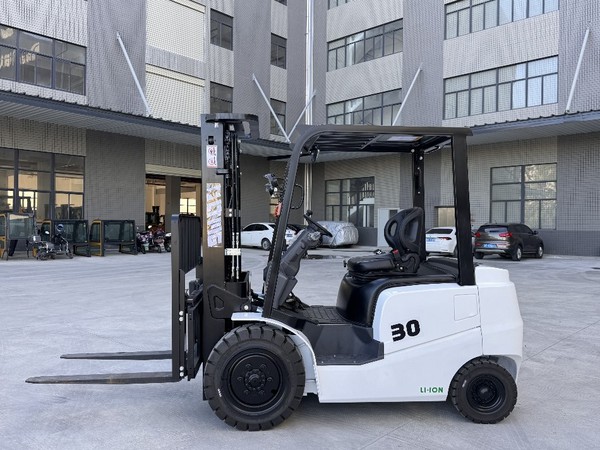
LTMG lATEST Lithium-ion Forklift
In modern warehouses, automated forklifts are becoming a trend. These forklifts are equipped with advanced navigation systems and sensors, enabling them to autonomously transport and stack goods. The advent of automated forklifts has improved warehouse efficiency, reduced labor costs, and minimized errors.
As forklift usage grows, safety concerns have become more prominent. To reduce accidents, modern forklifts are equipped with various safety devices and systems, such as collision avoidance systems and vehicle speed management systems. These features help protect operators and cargo, ensuring the stable operation of forklifts.
Overall, the history of forklift development mirrors the progress of modern industry. From simple mechanical devices to today's intelligent equipment, forklifts have witnessed every stage of industrial advancement. In the future, as technology progresses and needs change, forklifts will continue to innovate and evolve, bringing greater convenience and efficiency to various industries.
If you're looking for customised forklifts, welcome to contact us!



